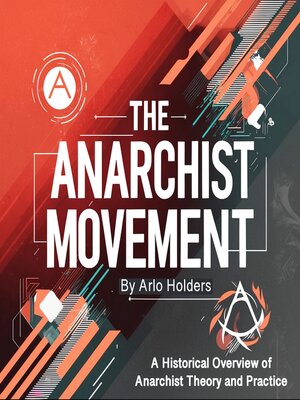The Anarchist Movement
audiobook (Unabridged) ∣ A historical Overview of Anarchist Theory and Practice
By Arlo Holders

Sign up to save your library
With an OverDrive account, you can save your favorite libraries for at-a-glance information about availability. Find out more about OverDrive accounts.
Find this title in Libby, the library reading app by OverDrive.



Search for a digital library with this title
Title found at these libraries:
| Library Name | Distance |
|---|---|
| Loading... |
Anarchism, as both a philosophy and a political movement, seeks to abolish hierarchical structures of power, particularly the state, and promote a society based on voluntary cooperation, mutual aid, and self-governance. The term "anarchy" is often misunderstood and associated with chaos or disorder, but in the context of anarchism, it refers to the absence of coercive authority, not lawlessness. Anarchism challenges the legitimacy of centralized governments, institutions, and systems that perpetuate inequality and domination, advocating instead for decentralized, egalitarian forms of social organization.
The roots of anarchism can be traced back to the philosophical and political developments of the 17th and 18th centuries, particularly in the Enlightenment. Thinkers such as William Godwin and Jean-Jacques Rousseau laid the groundwork for anarchist thought by critiquing the rise of centralized authority and envisioning societies based on the autonomy of individuals and communities. However, it was in the 19th century that anarchism began to take shape as a distinct political ideology, largely influenced by the writings and activism of figures like Pierre-Joseph Proudhon, Mikhail Bakunin, and Peter Kropotkin.
Central to anarchist theory is the belief in individual freedom and autonomy. Anarchists argue that all individuals should have the right to govern their own lives without interference from external authorities, whether those authorities are political, economic, or social. Anarchism posits that society can function without the need for a state, which is often seen as a coercive and oppressive institution. Instead, anarchists advocate for decentralized forms of governance, such as direct democracy, mutual aid, and voluntary association, where decisions are made collectively by communities rather than imposed by a centralized authority.







